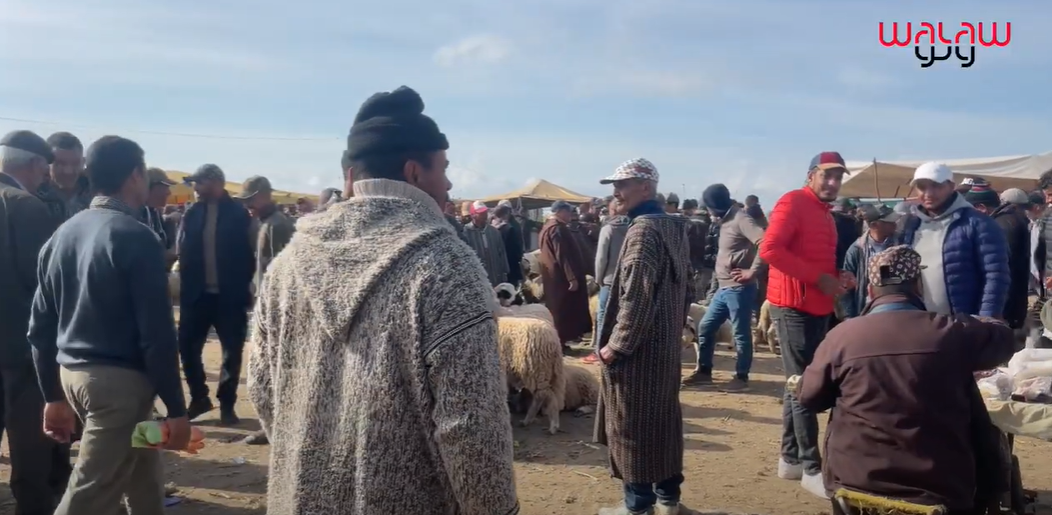Livestock farmers in Dar Gueddari decry Eid sacrifice decision
During a field visit to the weekly market of Dar Gueddari, Walaw gathered citizens' opinions on the unexpected decision to forgo the traditional Eid al-Adha sacrifice ritual. The announcement has sparked widespread controversy, dividing opinions between those who view it as a progressive measure and others who see it as a severe blow—particularly for livestock farmers (locally known as "kessaba") who depend on this season to sell their animals and secure their annual income.
In a quieter-than-usual market, many sheep farmers told Walaw they were shocked and frustrated, warning the decision would severely impact their livelihoods.
One farmer, who has sold livestock annually ahead of Eid, lamented: "We relied on this occasion to cover our yearly expenses, and now we are facing a real crisis." He added: "We demand financial support to compensate for our losses."
Another livestock breeder echoed the sentiment, saying: "This decision is catastrophic for us. We rely on Eid al-Adha to cover the costs of feed and veterinary care for the entire year." He explained that many farmers are already burdened by deferred debts due to rising livestock feed prices, with sheep prices reportedly dropping by as much as 2,000 dirhams per head.
A third farmer criticized the decision for overlooking the precarious situation of thousands of breeders and traders now facing an uncertain future. "We have many financial commitments, and this season was our chance to recover from losses incurred over the year. Now, the situation is much more difficult," he said. He added that some farmers were forced to sell their livestock at heavily discounted prices, while others returned home with their animals unsold.
The decision has left livestock farmers across the region grappling with financial uncertainty, prompting urgent calls for government intervention to mitigate the economic fallout.

-
16:50
-
16:45
-
16:30
-
16:20
-
16:12
-
16:00
-
15:50
-
15:41
-
15:30
-
15:20
-
15:00
-
14:50
-
14:31
-
14:30
-
14:20
-
14:00
-
13:50
-
13:30
-
13:20
-
13:12
-
13:00
-
12:50
-
12:45
-
12:30
-
12:20
-
12:15
-
12:03
-
12:00
-
11:50
-
11:45
-
11:30
-
11:25
-
11:20
-
11:00
-
10:50
-
10:30
-
10:20
-
10:00
-
10:00
-
09:50
-
09:50
-
09:30
-
09:20
-
09:10
-
09:00
-
08:50
-
08:33
-
08:30
-
08:20
-
08:00
-
07:50
-
07:40
-
07:20
-
07:00
-
18:50
-
18:30
-
18:20
-
18:00
-
17:50
-
17:30
-
17:20
-
17:00


